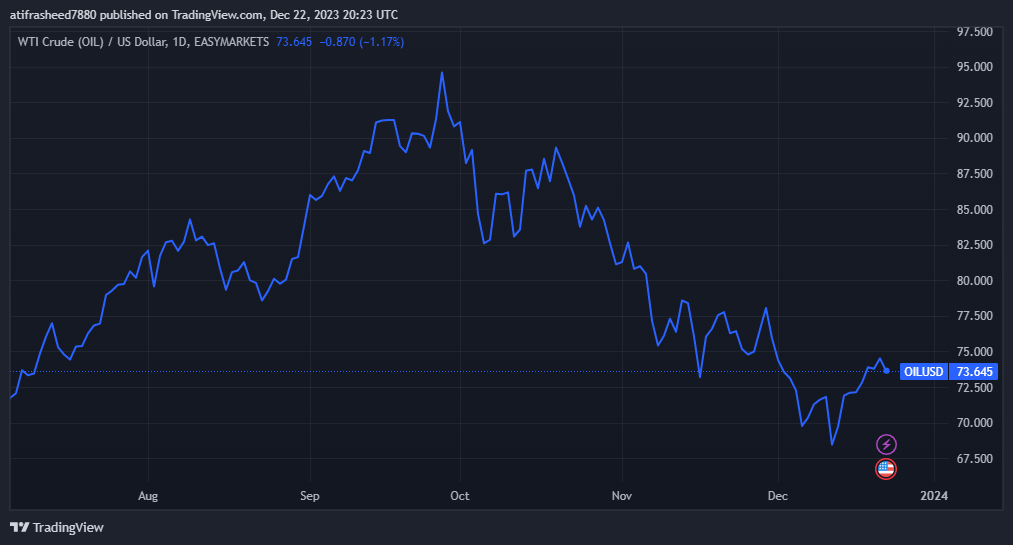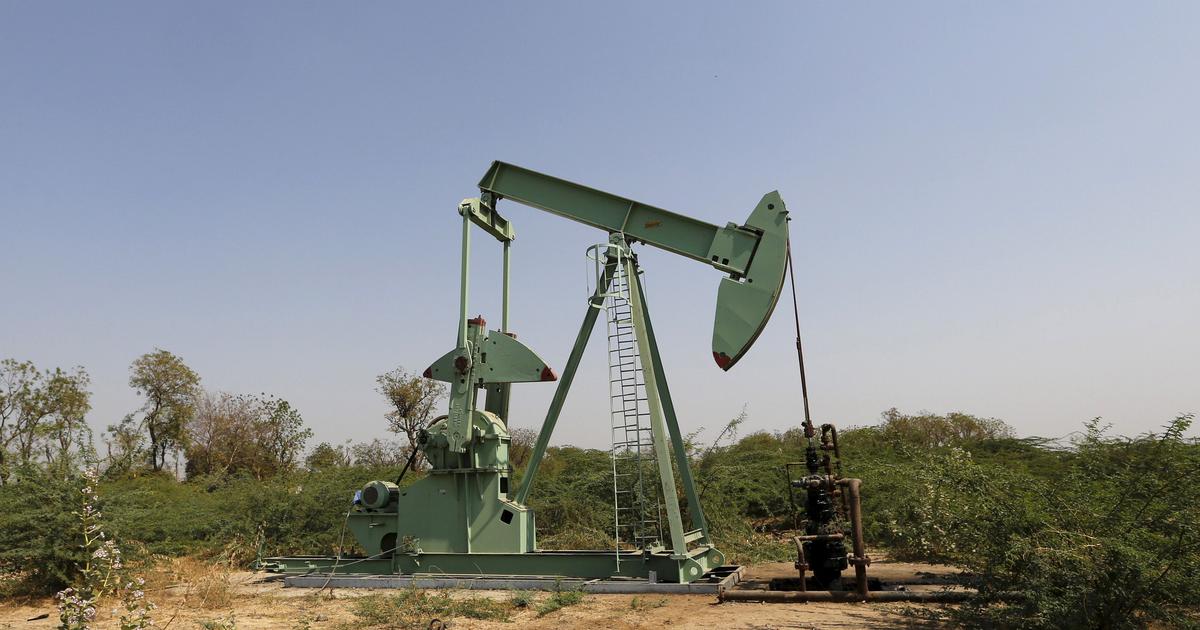OIL News | Oil is poised for a weekly increase due to disruptions in global flows caused by attacks in the Red Sea. Oil continued its most substantial weekly gain in two months as incidents in the Red Sea compelled numerous ships to opt for safer yet lengthier routes, resulting in delays in the transportation of oil shipments.

In a week marked by unexpected geopolitical events, the global oil market is experiencing heightened volatility as attacks in the Red Sea disrupt the usual flow of oil transportation. The repercussions of these incidents have set the stage for oil prices to register a significant weekly gain, reflecting the immediate impact on global supply chains.
Red Sea Attacks Unleash Turbulence
Recent attacks in the Red Sea have triggered a cascade of disruptions in the transportation of oil. As a vital waterway for oil shipments, any disturbances in the Red Sea have immediate and far-reaching consequences for global energy markets. The attacks have compelled hundreds of ships to adopt alternative routes, prioritizing safety but resulting in longer transit times.
The disruptions in the Red Sea have translated into a notable surge in oil prices, with the commodity poised for a weekly gain. Investors and market participants are closely monitoring the situation, assessing the potential implications of these unforeseen events on the balance of supply and demand in the oil market.
Oil prices are influenced by a myriad of factors, and geopolitical events play a crucial role in shaping market sentiment. The attacks in the Red Sea have added a layer of uncertainty to an already complex global energy landscape. Traders and investors are recalibrating their positions as they gauge the immediate and long-term effects of the disruptions on oil supply chains.

Global Supply Chain Disruptions
The disruptions in the Red Sea have forced a recalibration of global supply chains. With numerous ships opting for safer but longer routes, the transportation of oil cargoes is experiencing delays. This has a direct impact on the timely delivery of oil to various regions, contributing to the upward pressure on oil prices.
Geopolitical events that disrupt oil transportation routes often have broader strategic implications. Nations and industry players are closely watching developments in the Red Sea, assessing the potential risks and considering contingency plans to navigate the evolving situation.
The surge in oil prices reflects a heightened sense of risk in the market. Traders are evaluating the potential duration of the disruptions and the effectiveness of alternative transportation routes. As governments and industry stakeholders respond to the situation, market sentiment will continue to be shaped by the evolving narrative surrounding the Red Sea attacks.
Oil and shipping companies steer clear of the Red Sea following recent attacks.
In response to escalated attacks by Houthi rebels, leading oil company BP declared earlier this week that it would temporarily halt all shipments through the Red Sea. This decision aligns with a broader trend among major companies, with Maersk Tankers, A.P. Moller-Maersk, Hapag-Lloyd, MSC, Evergreen, and CMA CGM all announcing the avoidance of the Suez Canal until the security situation improves. This collective pause in vessel navigation has the potential to send ripples through global supply chains.
In a coordinated effort, the U.S. introduced Operation Prosperity Guardian this week, a new multinational security initiative. The initiative involves collaboration between the U.S., the UK, Bahrain, Canada, France, Italy, Netherlands, Norway, Seychelles, and Spain. Together, these nations aim to address security challenges in the southern Red Sea and the Gulf of Aden, with a primary objective of ensuring freedom of navigation. The multinational nature of this initiative underscores the shared commitment to safeguarding the security and stability of crucial waterways in the region.
The disruptions in the Red Sea have injected a dose of uncertainty into the global oil market, leading to a notable surge in prices. As the situation unfolds, the industry will closely monitor developments, and market participants will navigate the evolving geopolitical landscape. The impact of these disruptions extends beyond the immediate challenges in the Red Sea, influencing global supply chains and underscoring the intricate interplay between geopolitical events and energy markets.
